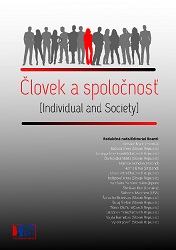Mentoring of University Students: Functions and Important Characteristics
Mentoring of University Students: Functions and Important Characteristics
Author(s): Marianna BerinšterováSubject(s): Higher Education , Educational Psychology, Sociology of Education
Published by: SAV - Slovenská akadémia vied - Spoločenskovedný ústav SAV
Keywords: Mentoring functions; University students; Theoretical background of mentoring; Social-ecological approach; Formal/natural mentoring;
Summary/Abstract: The term mentoring can be understood within several paradigms: the transfer of a particular set of values, skills and norms adopted by society; an interaction of experienced and less-experienced person; or, nowadays, as a learning partnership. A mentor is a person who supports the developmental progress of an adult or non-adult mentee. The means to fulfill this task are mentoring programs but also natural mentoring, where the mentor is a person on a mentee’s social network. Among university students the specifics of the developmental period and adult learning enter into the process of the mentoring relationship. The requirements of the academic environment, changes in social relationships and achieving adequate financial independence are challenges in which a mentoring relationship can be applied. At the same time the participants of the mentoring relationship is affected by their self-direction and their individual motivational aspects. Although the benefits of mentoring have been confirmed by research, mentoring programs are not established at universities in Slovakia. The aim of this contribution is to examine the current state of knowledge in the field of mentoring which is reflected in current studies describing the mentoring of university students. Studies published over the last 5 years published in the English language in the Web of Knowledge database were analyzed. The method of analysis is on the border of systematic review and scope review. The terms "mentoring functions" and "university students“ were selected as search terms. Ten studies met the selected criteria. The following subjects were explored: categories of mentoring functions in terms of behavioral interventions; the theoretical background socio-ecological and developmental approach; a focus on psychosocial mentoring or study/professional development; the implementation of mentoring programs or natural mentoring; and people in the role of mentor and their position in relation to university. The studies were divided into and analyzed in three areas: mentoring focused on solving study tasks, mentoring focused on practice, and mentoring focused on students with special needs. The results of the analysis point to differences in individual areas. Mentoring focused on solving study tasks including research and academic work, theoretical concepts devoted to the type of supervision, social-ecological dimension including being part of a scientific project and two-way benefits for mentor and mentee in terms of research productivity and provision of opportunities. Mentoring focused on practice including creating an opportunity for practical experience, giving feedback to a student's work, bringing knowledge from a specific work area and a specific workplace, leading and facilitating discussions among students, and social support concerning the practice. The theoretical background led to the concept of competence, social competence, communities of learners or critical evaluation of information. Social-ecological and developmental dimension, in addition to vocational support, focused on mutually beneficial cooperation between universities and workplaces where practice took place, and connections with the professional community. Mentoring focused on students with special needs was represented by individual and group meetings with a standardized curriculum relating to study tasks, as well as the development of competencies needed for successful study. Relying on the concept of social integration and social ecology and developmental specifics, it focused on the transfer to university study. The analysis pointed to the need to a theoretical grounding of natural and formal mentoring implemented in the university environment, specifically by means of social-psychological theories. Another finding was that the mentoring of university students in the analyzed studies focused on study / professional development. Psychosocial mentoring was not directly represented in the studies. Social-ecological funcions of mentoring emphasized the interconnection of university with other institutions within the community in favor of study and practice of students. The specificity of the division into formal / natural mentoring was also shown; there were three types of mentors in the studies: mentors within mentoring programs, mentors within the study curriculum, where the student can choose them, and a natural mentor - in addition to formal mentoring. Among the preferred characteristics of mentors were the terms: interest, support, dialogue partner, availability, activity, leadership, and resiliency. The study points out the specifics of mentoring of university students, and offers ideas for further research as well as the creation and verification of mentoring programs, such as mentoring in the context of learning and vocational training, mentoring provided by faculty members to students, or mentors in practice, theoretical background supporting mutual learning, and emphasis on the natural and psychosocial components of mentoring relationship. The theoretical foundations of mentoring include, in addition to attachment theory, social learning theory, planned behavior, and constructivism. Social constructivism related to learning in social groups corresponds to the paradigm of mentoring as a means of socialization and also play a role in clarifying the socio-ecologial dimension to mentoring. The limits of the research include the number of analyzed studies; the effectiveness of mentoring in analyzed studies was not taken into account. Another systematic review is needed for confirmation and completion of the results. Furthermore, future research should focus on the narrower concept of mentoring, different operalizations of this term „mentoring“ according to specific definitions, as well as other, organizational and socio-demographic aspects of the mentoring relationship.
Journal: Človek a spoločnosť
- Issue Year: 23/2020
- Issue No: 4
- Page Range: 1-17
- Page Count: 17
- Language: English

